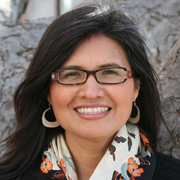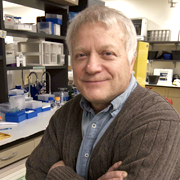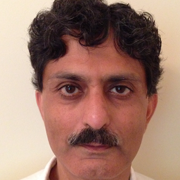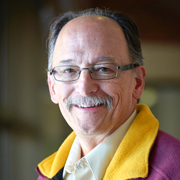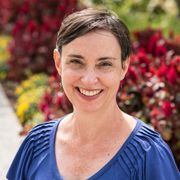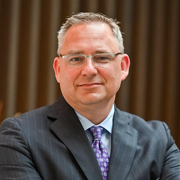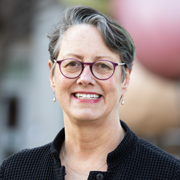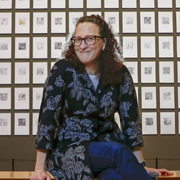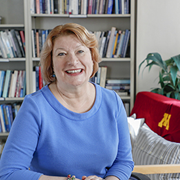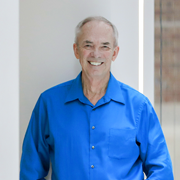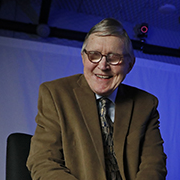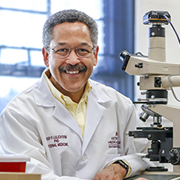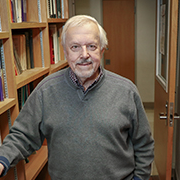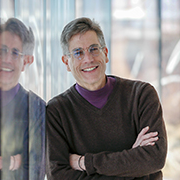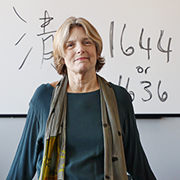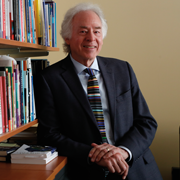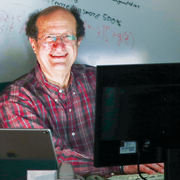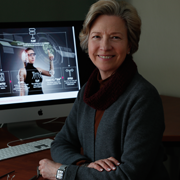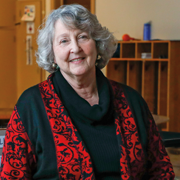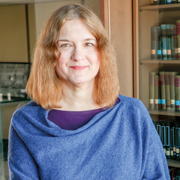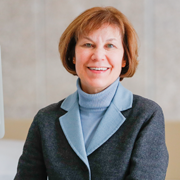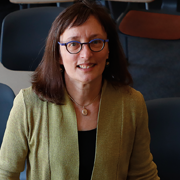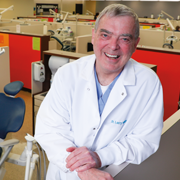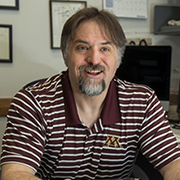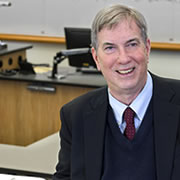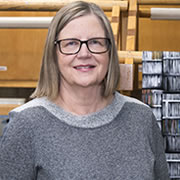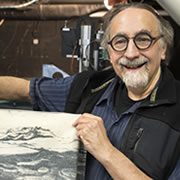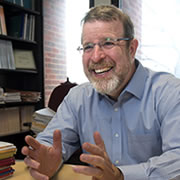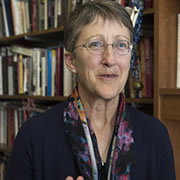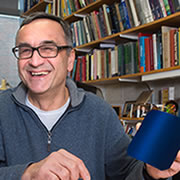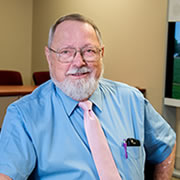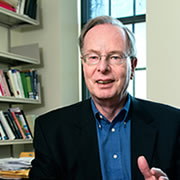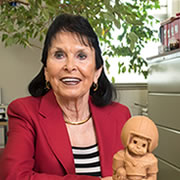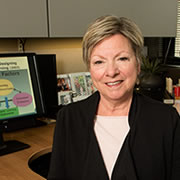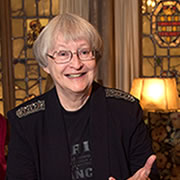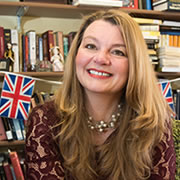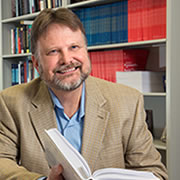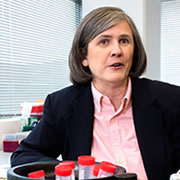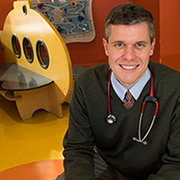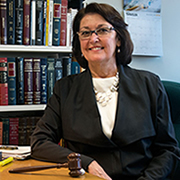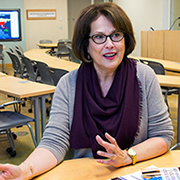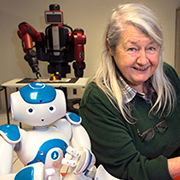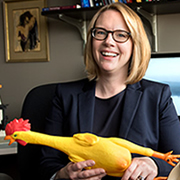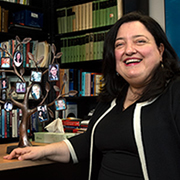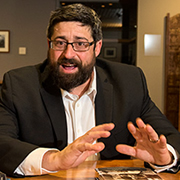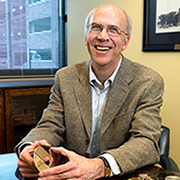Since 1998-1999, the University of Minnesota has recognized a select group of faculty members for their outstanding contributions to graduate and/or professional education. This honor is awarded annually to exceptional candidates nominated by their colleges in their quest to identify excellence in graduate and/or professional education. In addition to honoring individual faculty members, the award contributes to the improvement of graduate and professional education at the University by publicizing their work to serve as resources to the whole faculty.
The award is made possible through generous support of the University of Minnesota Alumni Association and the Office of the Executive Vice President and Provost.
Look here for more information about the Graduate-Professional Award.
Congratulations to the 2024 Award Recipients
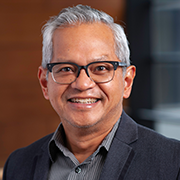
Rex Bernardo
Agronomy & Plant Genetics, College of Food, Agricultural & Natural Resource Sciences
University of Minnesota Twin Cities
Rex Bernardo has taught graduate courses in plant breeding, professional skills for scientists, and scientific writing. He has advised 26 M.S. and Ph.D. students who have gone on to successful careers in academia and industry. He wrote two textbooks that have become standards in plant breeding courses worldwide, developed software for the gamification of plant breeding knowledge, and organized short courses and workshops for the professional development of graduate students and continuing education of plant scientists.
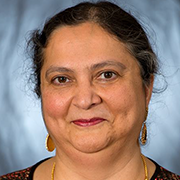
Rozina H. Bhimani
School of Nursing
University of Minnesota Twin Cities
Rozina Bhimani leverages her experiences as a non-native speaker and immigrant in supporting and inspiring minority and ESL students to pursue graduate education. In recognition of her excellence and dedication to teaching, she was named Best Nurse Educator by Mpls.St.Paul Magazine, and received The DAISY Award for Extraordinary Faculty in Teaching and the E. Louise Grant Award. She embodies the essence of a dedicated educator and mentor whose influence extends well beyond the classroom.
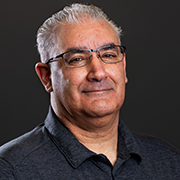
Pedro Fernandez-Funez
Biomedical Sciences, Medical School
University of Minnesota Duluth
Pedro Fernandez-Funez is a dedicated and passionate educator who is deeply involved in all aspects of graduate and professional education, from program development and course planning to high-contact student teaching and advising. He has served in critical roles in the new medical curriculum and spearheaded the development of a new Master’s program along with an entire new curriculum.
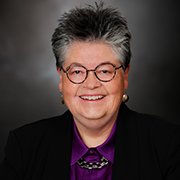
Kelley Harness
Music, College of Liberal Arts
University of Minnesota Twin Cities
A respected musicologist, Kelley Harness has spent her career uncovering the voices of sixteenth- and seventeenth-century women. Through her work as a teacher, advisor, and academic leader, she has helped students find their own voices, discover academic and non-academic career paths, and make their scholarship accessible to the world.
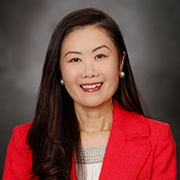
Jisu Huh
Journalism & Mass Communication, College of Liberal Arts
University of Minnesota Twin Cities
Jisu Huh is the Mithun Chair of Advertising in the Hubbard School of Journalism and Mass Communication and CLA. She has a distinguished track record of effective advising and led the M.A. and Ph.D. programs in mass communication for a decade. She has built two field-defining conferences, including the biennial Mithun Thought Leadership Forum in computational advertising and the Big Ten mass communication graduate student mini-conference.

Chad L. Myers
Computer Science & Engineering, College of Science & Engineering
University of Minnesota Twin Cities
Chad Myers has been a key driver of interdisciplinary graduate education at the intersection of computing and biology. He has mentored 20+ Ph.D. students and has developed multiple new courses that have both enabled computer scientists to tackle significant problems in biology and empowered hundreds of biology students with foundational computing skills. As Co-Director of Graduate Studies, he has played a pivotal role in the growth and long-term success of the Bioinformatics and Computational Biology program.
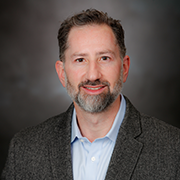
David Satin
Family Medicine & Community Health, Medical School
University of Minnesota Twin Cities
A practicing physician-educator, David Satin is wholeheartedly devoted to his students. He has taught bioethics in the medical school for over 20 years and pioneered curricula in race and racism, quality improvement and patient safety, and teamwork. He has personally advised, coached, and counseled over 500 students and taught over 2,000. During the COVID-19 pandemic, he increased clinical work while simultaneously developing virtual curricula, increasing research with students, and advising learners at all levels.
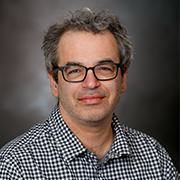
Daniel Schwarcz
Law School
University of Minnesota Twin Cities
Daniel Schwarcz is a dedicated and passionate instructor who teaches classes covering a broad range of legal topics to both law students and undergraduates. He has been a leader both at the law school and across the country in encouraging law professors to provide individualized feedback to first-year law students on their writing.

Malini Srivastava
Architecture, College of Design
University of Minnesota Twin Cities
Malini Srivastava, a forward-thinking architect and educator whose teaching and research upend expectations, joyfully challenges the status quo to create space for students to generate novel solutions for equity and the environment. Through her guidance, students publish impactful work and assume leadership roles, disrupting norms and advancing novel pedagogical methods. By leveraging research, play, and inclusive practices, she broadens participation, diversifies the field, and cultivates compassionate and innovative collaboration between students, instructors, and practitioners.
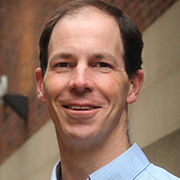
James Van de Ven
Mechanical Engineering, College of Science & Engineering
University of Minnesota Twin Cities
James Van de Ven has made a lasting impact on the Mechanical Engineering graduate program through revising the graduate curriculum, introducing a new Ph.D. Qualifying Exam format, recruiting diverse students, and building a supportive graduate community. He serves as a leader in graduate education by actively engaging students in flipped classrooms. His active research program focuses on industry-academic partnerships to create societal impact while educating the next generation of innovators in a supportive environment.
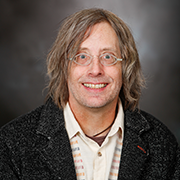
Andrew Zieffler
Educational Psychology, College of Education & Human Development
University of Minnesota Twin Cities
Andrew Zieffler is a Teaching Professor in the Quantitative Methods in Education program of the Department of Educational Psychology. He has made outstanding contributions to graduate and professional education through his development of statistics courses, curriculum, and open education resources, as well as mentoring student TAs and instructors. As an award-winning teacher, he implements a student-centered active learning approach based on pedagogical and assessment research from the fields of learning, cognition, educational measurement, and statistics education.
Congratulations to the 2023 Award Recipients
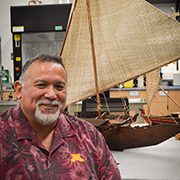
Vicente M. Diaz
American Indian Studies, College of Liberal Arts
University of Minnesota Twin Cities
Vicente Miguel Diaz left his home island of Guam to play college football but took a detour through academia to become a game changer in the fields of Pacific Island Studies and Global Indigenous Studies. Widely known for highly original and innovative scholarship, Diaz also influenced generations of Native scholars from the Pacific Islands and from Turtle Island through inspired teaching and loving mentorship.
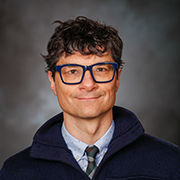
Greg Donofrio
Architecture, College of Design
University of Minnesota Twin Cities
Greg Donofrio is an innovative interdisciplinary historic preservationist who has done extraordinary work to shift that field so that it addresses a broader range of people and histories by expanding the types of structures and subjects that academics and practitioners preserve and work on, fostering collaboration with a more diverse range of communities, and opening the profession to people who have historically been excluded from the field.
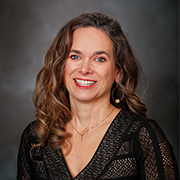
Lizbeth H. Finestack
Speech-Language-Hearing Sciences, College of Liberal Arts
University of Minnesota Twin Cities
Lizbeth Finestack has a truly distinguished record of service to graduate and professional education. Her graduate student advising is individualized, responsive, and educates people to be productive clinician-scholars. As Director of Graduate Studies, she has made lasting, meaningful changes to the SLHS department's Diversity, Equity and Inclusion (DEI) efforts for students and faculty alike. Her DEI work has been noticed widely in the field, and has contributed positively to graduate education in SLHS more broadly.
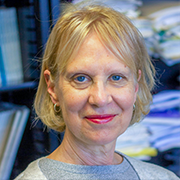
Patricia Frazier
Psychology, College of Liberal Arts
University of Minnesota Twin Cities
Patricia Frazier is a Distinguished McKnight University Professor and Distinguished University Teaching Professor in the Psychology Department. For more than 30 years, she has mentored hundreds of students while conducting high-impact research on the effects of stress and trauma.
As Associate Chair and Director of Graduate Studies, Dr. Frazier transformed graduate education in Psychology. She also established the Patricia Frazier Overcoming Obstacles Scholarship fund to help students overcome financial obstacles to achieve their educational goals.
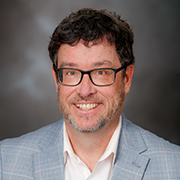
Douglas Hartmann
Sociology, College of Liberal Arts
University of Minnesota Twin Cities
Douglas Hartmann is a prolific advisor, having chaired or co-chaired 19 sociology PhDs and served on 46 additional committees. A popular instructor and generous co-author, Hartmann’s effectiveness in graduate education is reflected in the remarkable success of his students in publishing and on the job market. Hartmann has also been a campus leader on myriad DIversity, Equity and Inclusion (DEI) initiatives for BIPOC students and in the creation of the Edelstein Fellows Program and the Shimota Scholarship in Sociology.
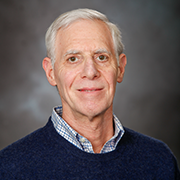
Gerald E. Sobelman
Electrical & Computer Engineering, College of Science & Engineering
University of Minnesota Twin Cities
Gerald Sobelman has taught graduate courses on semiconductor chip design at the University of Minnesota for more than 35 years. His courses have educated well over one thousand graduate students, many of whom have gone on to careers at technology companies.
His course development activities have enhanced the graduate curriculum of the Department of Electrical and Computer Engineering, and he has also contributed to graduate education through his distance learning and outreach activities.
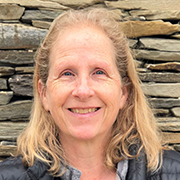
Donna L. Whitney
Earth & Environmental Sciences, College of Science & Engineering
University of Minnesota Twin Cities
Donna Whitney has a long record of successful mentoring of graduate students in multi-disciplinary approaches to Earth Sciences, including teaching in classes, laboratories, and field sites. Her efforts have had a positive impact on broadening participation in the geosciences. She also developed an innovative introductory graduate course focused on research methods, science communication, and geo-ethics, and initiated a scholarship to provide ‘start up’ funds to every new graduate student in her department.
Congratulations to the 2022 Award Recipients
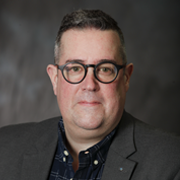
Marc Bellemare
Applied Economics, College of Food, Agricultural, and Natural Resource Sciences
University of Minnesota Twin Cities
Professor Marc Bellemare is a Distinguished McKnight University Professor, Northrop Professor in the Department of Applied Economics, and Director of the Center for International Food and Agricultural Policy. His goal as an advisor is to help graduate students make the transition from student to independent scholar. Professor Bellemare's work advances our understanding of agricultural economics, international development, and applied econometrics.
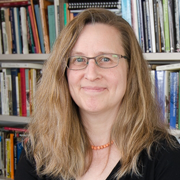
Kat Hayes
Anthropology, College of Liberal Arts
University of Minnesota Twin Cities
Professor Kat Hayes is an extraordinary scholar and teacher in the interdisciplines of historical archaeology, heritage studies, public history, and American Indian studies. Her work as a mentor-advocate-scholar is influential in many fields and centers the histories of marginalized and underrepresented peoples. Dr. Hayes’ program-building, curriculum design, and student facing research program all greatly benefit UMN graduate students, contributing to the development of a new generation of ethically-motivated, justice-oriented scholars, advocates, and community leaders.
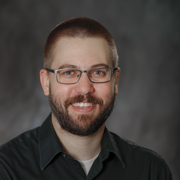
Brad Holschuh
Design, Housing & Apparel, College of Design
University of Minnesota Twin Cities
Professor Brad Holschuh is the Director of the Human Factors and Ergonomics graduate program and is an Associate Professor of Apparel Design. An aerospace engineer by training, he teaches several interdisciplinary graduate courses and is appointed as faculty in four graduate programs across the Colleges of Design and Science/Engineering. Dr. Holschuh co-directs the Wearable Technology Laboratory, where engineers, designers, and human factors students work together to create a future that blends clothing and technology.
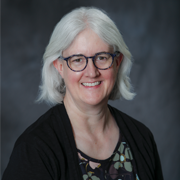
Sharon Jansa
Ecology, Evolution & Behavior, College of Biological Sciences
University of Minnesota Twin Cities
Professor Sharon Jansa’s contributions to graduate education are multifaceted. In her eight-year role as Director of Graduate Admissions, Dr. Jansa has made substantial, evidence-based structural changes to graduate recruitment that have increased the diversity of the program. As a graduate mentor, she trains students as independent scientists, connecting them to a range of career paths; she is so appreciated by past students, that a new species of opossum was named in her honor.
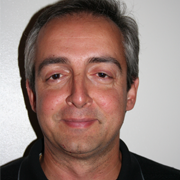
Nikos Papanikolopoulos
Computer Science & Engineering, College of Science and Engineering
University of Minnesota Twin Cities
Professor Nikos Papanikolopoulos has created a long and outstanding tradition of quality graduate education in the areas of robotics and computer vision. His efforts have instigated the creation of the Minnesota Robotics Institute and its associated MS program in Robotics. Through extensive and dedicated guidance, his graduate students have become leaders in their respective fields and the program’s emphasis on research has propelled it to become globally recognized in the field.

Amy L. Pittenger
Pharmaceutical Care & Health Systems, College of Pharmacy
University of Minnesota Twin Cities
Professor Amy Pittenger is someone who deeply cares about the student experience. She has demonstrated her commitment to learners through creative educational design and supportive and long-term mentorship and advising. Dr. Pittenger is a recognized expert in educational design across modalities and learner types. Her contributions to teaching and learning have been recognized through multiple awards and leadership roles.
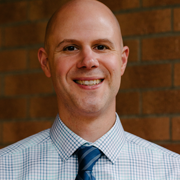
Michael J. Silverman
Music, College of Liberal Arts
University of Minnesota Twin Cities
Professor Michael J. Silverman is a Board-Certified Music Therapist and Director of the University’s Music Therapy Program. Specializing in music therapy for people with mental health and substance use conditions, Michael is actively engaged in clinical research at the University’s Medical Center. Michael teaches three of the four core undergraduate music therapy classes and all four graduate music therapy classes. Since his hire in 2007, all graduates of the music therapy program are employed.
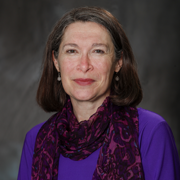
Frances Vavrus
Organizational Leadership, Policy & Development, College of Education and Human Development
University of Minnesota Twin Cities
Frances Vavrus is Professor of Comparative and International Development Education and Associate Chair of the Department of Organizational Leadership, Policy, and Development. She has made outstanding contributions to graduate and professional education through innovative, internationally-focused program and curriculum development. She is an award-winning teacher and advisor whose active, collaborative model of leadership and pedagogy has influenced generations of students who are now academic and professional leaders around the world.
2021 Award Recipients
Bianet Castellanos
American Studies, College of Liberal Arts
University of Minnesota Twin Cities
Bianet Castellanos is a leading scholar of Indigenous migrations and community-engaged research. As Director of Graduate Studies and department chair, she has been instrumental in recruiting and retaining students of color whose work on racial and social justice is transforming the academy. Her pathbreaking research has paved the way for a new subfield and created a national forum through which to mentor a new cadre of Indigenous students from the Global South.
William F. Elmquist
Pharmaceutics, College of Pharmacy
University of Minnesota Twin Cities
William F. Elmquist has been a dedicated and passionate teacher of pharmaceutics for over 30 years. He has shown great respect for the professional and graduate students under his tutelage, and they have exceled due to his leadership and example. He has incorporated his research into mentorship of graduate students, leading to breakthroughs in cancer treatment. Elmquist’s efforts have significantly enhanced the international reputation of the Department of Pharmaceutics and the College of Pharmacy.
Vinay Gidwani
Geography, Environment and Society, College of Liberal Arts
University of Minnesota Twin Cities
Vinay Gidwani is Professor of Geography and Global Studies at the University of Minnesota. For the past 20 years Gidwani has made exceptional contributions to graduate education in GES, the CLA, and beyond. He has been an inspiring and highly effective graduate instructor and adviser, has been instrumental in developing and revising our graduate programs, and has enriched the intellectual life of graduate students across campus and across the discipline. Today, his former advisees hold prestigious faculty teaching and research positions in top universities around the world.
Scott Lanyon
Ecology, Evolution and Behavior, College of Biological Sciences
University of Minnesota Twin Cities
Scott Lanyon made significant contributions to graduate education prior to stepping into his current role as Vice Provost and Dean for Graduate Education (in 2016). He developed a proposal writing class, which trained over 300 graduate students and led to a doubling of NSF graduate fellowship recipients at the University of Minnesota. He strengthened the graduate program in Ecology, Evolution and Behavior through an external review and the implementation of a professional development seminar.
Kathryn S. Quick
Public and Nonprofit Leadership and Management, Humphrey School of Public Affairs
University of Minnesota Twin Cities
Kathy Quick, Associate Professor and Chair of the Public and Nonprofit Management and Leadership Area of the Humphrey School of Public Affairs, trains professional students across multiple disciplines to address complex public problems, advance equity and inclusion, and forge shared leadership across differences. Through groundbreaking research, classroom teaching and advising, community engagement, mentoring of other instructors, and ongoing support to graduates in leadership roles, she works tirelessly to create inclusive educational and policy environments.
Todd D. Sorensen
Pharmaceutical Care & Health Systems, College of Pharmacy
University of Minnesota Twin Cities
Todd Sorensen is a creative, inspiring and supportive teacher who has positively influenced learners through classroom instruction, mentorship, student organization advising and academic program design. He is a recognized expert in healthcare practice transformation and leadership development who seamlessly blends experiences from community-engaged work with learner instruction and career development. His contributions to teaching and learning have been recognized via multiple national awards for teaching innovation and mentorship.
Kathleen M. Thomas
Institute of Child Development, College of Education and Human Development
University of Minnesota Twin Cities
Kathleen Thomas has made outstanding contributions to graduate education in teaching, research, and service. She actively engages students in the learning process in both the classroom and laboratory and is recognized for her outstanding graduate mentorship. She has contributed to graduate program development and refinement at the department, college and all-university levels. Her advocacy on issues of graduate education exemplifies her abiding commitment to promoting and serving the needs of graduate students.
Rebecca Wurtz
Division of Health Policy and Management, School of Public Health
University of Minnesota Twin Cities
Rebecca Wurtz is an infectious disease physician and health informaticist. She uses her experience and insights into medicine, population health, and government service to teach aspiring public health professionals the skills they need to be successful and how to use what they learn and discover to bring meaning to what they do.
2020 Award Recipients
Jane Blocker
Art History
College of Liberal Arts
Jane Blocker is a renowned scholar of contemporary art and a leader in graduate education at the University of Minnesota. Her reputation as an engaged and generous mentor has made her a sought-after adviser. As Director of Graduate Studies and department chair, she revitalized the graduate program in Art History. As Associate Dean for Arts and Humanities in the College of Liberal Arts, she continues to prioritize the recruitment, training, and support of graduate students.
Penny Edgell
Sociology
College of Liberal Arts
Penny Edgell has served for six years as the Director of Graduate Studies in Sociology. She runs a monthly mentoring group that supports 10-12 graduate students, and participates in several mentoring programs run by professional associations. She has advised 15 doctoral students and served on 36 Ph.D. committees. She favors collaborative research projects that allow her to mentor students in all stages of the research process.
Joseph Kapusta
Physics & Astronomy
College of Science & Engineering
Joseph Kapusta has mentored 19 Ph.D. graduates and 25 postdocs since joining the faculty at the University of Minnesota. They have gone on to distinguished careers in academia, with many of them attaining tenure at prominent research universities, as well as industrial positions. This success was enabled by Professor Kapusta’s advising style and unique strengths as a teacher-scholar, focusing on each mentee’s needs while ensuring that they receive outstanding technical training and connections.
Gordon Legge
Psychology
College of Liberal Arts
Gordon Legge is an inspirational and dedicated mentor and classroom teacher, whose training efforts helped establish an entire subfield that aims to improve the lives of people with visual disabilities. He also helped establish a unique training program on sensory disabilities more generally, and has worked tirelessly, and with great success, to improve and modernize the graduate training program of the Psychology Department as a whole.
Jody Lulich
Veterinary Clinical Sciences
College of Veterinary Medicine
Jody Lulich has been a faculty member in the College of Veterinary Medicine for nearly 30 years, and has received international recognition for his research on canine calcium oxalate urolithiasis, a diagnosis that has high importance for both companion animals and humans. He has received numerous awards for teaching and mentoring and holds the Osborne/Hills Endowed Chair in Nephrology and Urology.
Donald G. Truhlar
Chemistry
College of Science & Engineering
Donald Truhlar has established himself as one of the premier teachers in the Chemistry graduate program. His achievements include advising theses and postdoctoral associates, developing a new degree program and many new courses, obtaining training grants and research grants that have supported many graduate students and postdoctoral associates, and involving these mentees in world-class research. He has been honored three times for his graduate advising.
Carston R. Wagner
Medicinal Chemistry
College of Pharmacy
Carston Wagner is a passionate, rigorous, and caring medicinal chemistry graduate student advisor and teacher, who has had a tremendous impact on both the professional and personal development of his advisees and the medicinal chemistry graduate program. Through his pioneering efforts, he has expanded and strengthened training and development opportunities for graduate education at the interface of chemistry and biology across the University of Minnesota.
Ann Waltner
History
College of Liberal Arts
Ann Waltner has been a transformative mentor of graduate students for over thirty years. Her work has sustained intellectual bridges to China, and established the University’s presence in Asian history and Asian studies. Moreover she is also an innovator in interdisciplinary graduate training, has dramatically improved graduate funding in her department, and helped recruit and retain diverse graduate cohorts.
2019 Award Recipients
James W. Begun
Health Policy & Management
School of Public Health
Professor James Begun is nationally recognized for his scholarship and leadership in making professional education more student-centered by building curricula around the knowledge, skills, and values required for effective workplace performance. For more than two decades, his engagement with students in management and leadership courses at the University of Minnesota has fostered the careers of thousands of graduates and significantly enhanced their ability to make a positive and significant difference in their organizations and communities.
Daniel Boley
Computer Science & Engineering
College of Science & Engineering
Professor Daniel Boley is an outstanding leader in interdisciplinary graduate education at the University of Minnesota with a long and distinguished history of development of graduate programs, classroom teaching, and graduate student advising. He has been the lead developer and founding director of the successful Data Science graduate program, which provides a framework for students and faculty throughout the University to work together on mutually beneficial research projects.
Ann Hill Duin
Writing Studies
College of Liberal Arts
Professor Duin is an outstanding leader of graduate education. In 1992, she led the development of our MA and PhD graduate programs. In addition, Professor Duin has provided exceptional leadership for our professional MS and graduate certificate programs, increasing enrollment and reforming the programs to include online delivery with thoughtfulness and rigor. She has developed strong innovations such as a research collaboratory and advisory board to foster active mentoring and publishing with graduate students.
Megan R. Gunnar
Institute of Child Development
College of Education & Human Development
Megan R. Gunnar, Regents Professor and chair of the Institute of Child Development, studies the neurobiology of stress and its regulation by relationships from infancy through adolescence. Dr.Gunnar has dedicated nearly 40 years of exceptional instruction and program leadership to graduate education at the University of Minnesota. During her tenure, Gunnar has developed new courses and graduate programs while advising and matriculating over 35 students through the Child Psychology PhD program. She has received life-time achievement awards from the American Psychological Association, the International Society of Psychoneuroendocrinology, and the Society for Child Development. In 2017, Professor Gunnar was elected to the American Academy of Arts and Sciences and the National Academy of Education.
Monica Luciana
Psychology
College of Liberal Arts
Monica Luciana is a Distinguished McKnight University Professor of Psychology at the University of Minnesota. For over 20 years she has served as an inspiring and impactful mentor to dozens of doctoral students and post-doctoral fellows pursing research on how the brain and behavior interact in the context of psychopathology. As chair of the Psychology Department she initiated transformative changes to the graduate program that fostered greater equity, diversity, and inclusion.
Susan O'Conner-Von
Nursing
School of Nursing
Professor O’Conner-Von is a much beloved University of Minnesota “Beacon of Educational Excellence.” Her excellence spreads beyond the boundaries of the School of Nursing, extending brilliant leadership as DGS of interdisciplinary graduate and professional programs of the Bakken Center for Spirituality and Healing. Her transformational teaching influences students by nurturing their intellectual, ethical and emotional development. Through her design of powerful, engaging “exquisite” learning environments, she reaches student hearts and there leaves her indelible mark.
Julie Schumacher
English
College of Liberal Arts
Julie Schumacher is not only a world-famous writer but also the dynamic force behind the top-ranked Creative Writing Program at the University of Minnesota. She transformed a small, local program into a program widely recognized as among the top 10 in the country. Students uniformly attest to the lifelong commitment that she makes to the success of her MFA advisees.
Larry F. Wolff
Developmental & Surgical Sciences
School of Dentistry
Professor Larry Wolff has demonstrated his commitment as a dedicated teacher, clinical educator and scholar at the University of Minnesota. His continuing passion and enthusiasm for presenting quality, informative and thought provoking lectures and clinical instruction in the School of Dentistry is evidenced by nine teaching awards and also the Century Club Professor of the Year Award acknowledging his outstanding teaching. Dr. Wolff’s tenure has been recognized for exemplary graduate and professional education.
2018 Award Recipients
Victor H. Barocas
Biomedical Engineering
College of Science & Engineering
Professor Barocas has spent that last 17 years contributing to graduate education at UMN through his role as a classroom teacher, a mentor for M.S. and Ph.D. students, the Director of Graduate Studies for Biomedical Engineering, and a member of the Graduate Education Councils for the College of Science and Engineering and for the University. He is a strong advocate for students and a promoter of student opportunity and diversity.
Bradley G. Clary
Law School
In his thirty-six years of teaching here (including eighteen years of full time teaching), Professor Clary has directed and developed the Law School’s legal writing, appellate advocacy, and trial practice programs. He has educated thousands of students, authored or co-authored five different teaching texts, and served the University, the State of Minnesota, and the national legal community in multiple ways. Teachers don’t come any better.
E. Dan Dahlberg
School of Physics and Astronomy
College of Science & Engineering
Professor Dahlberg has mentored over 25 PhD graduates since joining the faculty of the University of Minnesota. These physicists have gone on to careers in academia as well as a wide spectrum of industrial environments, including their own companies. This success has been enabled by Professor Dahlberg’s unique advising style, which is based on establishing an intellectual partnership with his graduate students while developing a full portfolio of technical and communication skills.
Barbara E. Martinson
Design, Housing, and Apparel
College of Design
Barbara Martinson is a Professor of graphic Design and the Director of Graduate Studies for the Design Graduate Program. She has been instrumental in developing graduate degree plans for the MFA and Ph.D. degrees. She works with her graduate students on issues of visual communication for safety, health, and well-being. Teaching and designing pedagogy are her primary research areas.
Chris Paola
Earth Sciences
College of Science & Engineering
Professor Paola is an innovative teacher and researcher who has mentored many graduate students to success, prioritized excellence in graduate education through leadership of research centers, co-created a unique graduate course in stream restoration, and established an international faculty-graduate student exchange program. He shares his most promising ideas with students, emphasizing cooperation and high ethical standards. He encourages risk-taking, learning from failure, and looking foolish in the service of curiosity, improvisational thought, and creative inquiry.
Robert E. Porter
Veterinary Population Medicine
College of Veterinary Medicine
Professor Porter is a beloved teacher who inspires students through infectious enthusiasm and creative approaches. He fearlessly explores new techniques and technology to the great benefit of learners. He is an award winning course coordinator who has led a diverse faculty team to outstanding results. He shares his expertise in poultry pathology through the formation of collaborative partnerships to benefit learners in the state and region. He leads through his scholarly approach.
Alexander J. Rothman
Psychology
College of Liberal Arts
Professor Rothman has demonstrated dedication to graduate education through mentorship, teaching and program development. Through his approach to graduate training he provides students with the skills and inspiration to design and pursue lines of work that have an impact on their discipline as well as on practice and policy. As Associate Dean for Graduate Education, he established innovative programs and policies to support graduate programs across CLA and secured increased resources to support graduate students.
Barbara Young Welke
History and Law
College of Liberal Arts and Law School
In her twenty years at the University of Minnesota, graduate and professional teaching, advising, and mentoring have been central to Professor Welke’s mission. Through the Program in Law and History, leadership of the Hurst Institute, and other initiatives, she has made the University of Minnesota a premier institution for the training of legal historians, and as Director of Graduate Studies she made programmatic changes that left a lasting positive legacy for History Ph.D. students.
2017 Award Recipients
Eray S. Aydil
Chemical Engineering & Materials Science
College of Science & Engineering
Eray Aydil demonstrates exceptional graduate instruction and mentorship, which he achieves by combining his natural pedagogical gifts, personal and professional humility, ethical code, and penetrating sincerity. He inspires, empowers and motivates the PhD students in the Department of Chemical Engineering and Materials Science.
Jim Boulger
Biobehavioral Health & Population Sciences, Medical School
University of Minnesota Duluth
Jim Boulger’s impact on the medical students of the University of Minnesota Medical School Duluth campus is legendary. His contributions as a teacher and mentor span five decades and have significantly influenced rural medical education and positively impacted the health of Minnesota’s rural citizens. Throughout his long career, Jim’s energetic engagement with medical students and the curriculum have reinforced the expectation that our students will ultimately serve rural or Native American communities.
Mark L. Davison
Educational Psychology
College of Education & Human Development
Professor Davison’s accomplishments include authorship of the first Graduate Student Handbook for the then new Department of Educational Psychology, creation of two endowed student assistantships, a $5,000,000 federally funded pre-doctoral training program, mentorship of students in a K-12 educational accountability center, and an online research symposium for faculty and graduate students involving five universities (Universities of Alberta, Iowa, Maryland, Minnesota, and Nebraska). Students with whom he has worked have taken eminent positions throughout the world.
Susan Goodwin Gerberich
Environmental Health Sciences
School of Public Health
Susan Gerberich is the Leon S. Robertson Professor of Injury Prevention, Mayo Professor of Public Health, and Director of the Midwest Center for Occupational Health and Safety Education and Research Center in the School of Public Health. She is an internationally recognized injury epidemiologist who developed and continues to lead a successful graduate academic research program. She has mentored dozens of graduate students, conducted extensive student-involved research, and demonstrated graduate teaching excellence.
Kathleen Krichbaum
Population Health Systems
School of Nursing
Kathleen Krichbaum is a master teacher, mentor and scholar who has had a transformational influence on her students and on nursing education. She has developed curricula; designed methods for evaluating program quality and for assessing clinical competencies used by her students and peers, as well as by schools of nursing throughout the country. She is a recognized thought leader who infuses creativity and innovation into designing strategies to improve how nurses teach and practice.
Kathryn Reyerson
History
College of Liberal Arts
Kathryn Reyerson is an outstanding teacher and stellar mentor who has helped shape the research agendas and professional careers of large numbers of graduate students. She has been a pivotal figure in the graduate program in medieval and early modern history, especially because of her critical work in developing the Center for Medieval Studies at the University of Minnesota.
Katherine West Scheil
English
College of Liberal Arts
Katherine West Scheil teaches innovative graduate courses to bring students into active conversation with the most urgent, cutting-edge topics in the Humanities. As Director of Graduate Studies in English for five years, she spearheaded new initiatives to enhance teaching;, significantly increased resources for student research support, and launched a program of professional development. Her awareness of the challenges and pleasures of graduate education motivates her to inspire students by teaching, mentoring, and empowering them to grow and excel in their intellectual pursuits.
Jeffry A. Simpson
Psychology
College of Liberal Arts
Jeffry A. Simpson is Professor of Psychology and Director of the Doctoral Minor in Interpersonal Relationships (IREL) at the University of Minnesota. He has been actively involved in the development and running of several graduate education programs as well as the training of numerous graduate students over the past 30 years. His research interests focus on relationships, evolution and social behavior, and social development across the lifespan.
Margaret A. Titus
Genetics, Cell Biology & Development
Medical School
Meg Titus is an internationally recognized scholar widely known for her research excellence in the cell biology of the cytoskeleton. She excels in teaching the fundamentals of cell biology and the art of lucid scientific presentation. Her love of science is infectious, and she is admired for her generosity and passion in the training of undergraduates, graduate students, and post-doctoral fellows, both within and outside her laboratory at the University of Minnesota.
2016 Award Recipients
Bryce A. Binstadt
Pediatrics
Medical School
A physician-scientist, Bryce Binstadt is a leading researcher and practitioner in the field of pediatric rheumatology. He excels in teaching across the span of his expertise, from basic immunology to the science and art of clinical medicine. He is also the founder of the department’s Pediatric Rheumatology Fellowship program. By combining his care of patients with work in his NIH-funded laboratory, Binstadt nurtures the careers of numerous graduate and medical students, postdoctoral trainees, and clinical fellows at the University of Minnesota and across the nation. See a full profile (pdf).
Ann M. Burkhart
Law School
As a nationally recognized expert in real estate law, Ann Burkhart has taught more than 5,000 students with rigor, passion, and care. She requires students to dig deeply into the course materials and to focus on the larger context. The students are inspired by her passion for the law and for their progress, and they benefit from her generous mentoring. According to a former student, she inspires learners to “look beyond technical and legal analysis and think deeply about what is practical and equitable.” See a full profile (pdf).
Mary L. Chesney
School of Nursing
Mary Chesney influences students by designing exquisite learning environments in the classroom, online, and in the community, and providing real-world “stretch” experiences. She served from 2010 to 2015 as director of the Doctor of Nursing Practice program, where her leadership and administrative skills are credited with driving the program’s growth and national prominence. The program is now the largest campus-based/online hybrid program in the country. Though a high-profile professional in her field, her availability to students is a remarkable constant. See a full profile (pdf).
Maria L. Gini
Computer Science and Engineering
College of Science and Engineering
As a teacher and adviser, Maria Gini instills students with the excitement of advancing the state of the art in computing in general and in artificial intelligence in particular. Her new students are often surprised to discover that she employs a pair of small, fully automated robots in her classroom as exemplars of state-of-the-art robotic devices. Gini’s combination of imagination and dedication to her field has earned her an international reputation in robotics and artificial intelligence, as well as a number of honors for her teaching, including the Morse-Alumni Award in 1987. See a full profile (pdf).
Kristine P. Krafts
Diagnostic and Biological Sciences
School of Dentistry
Kristine Krafts has perfected the art of teaching complex medical concepts with simplicity, grace, and humor. She teaches and directs the General Histology and Pathology courses at the Dental School, and the Hormonal Medicine and Hematology courses at the Duluth Campus of the Medical School. Her lectures are exciting, energetic, and entertaining. On the website she developed, pathologystudent.com, Krafts covers basic information, questions and answers, clinical cases, and unique tips for learning pathology that are illustrated clearly. Through it she not only motivates her students and facilitates learning, but reaches out to pathology students worldwide to help them learn pathology in a friendly, interactive environment. See a full profile (pdf).
Deniz S. Ones
Psychology
College of Liberal Arts
Deniz Ones is a gifted teacher and mentor, whose students benefit greatly from her collegial style of research leadership. As one of the most influential scholars in Industrial and Organizational Psychology, she embraces a collaborative mentorship style that has resulted in numerous impactful publications co-authored by her mentees. Her advisees have won every award that the Society of Industrial and Organizational Psychology offers to graduate students. She is considered by colleagues as one of the main reasons why, though small, the Industrial and Organizational Psychology program consistently ranks first of 54 such programs in the nation. Ones was named a Distinguished McKnight University Professor in 2011. See a full profile (pdf).
Joe Soss
Hubert H. Humphrey School of Public Affairs
Joe Soss is an internationally acclaimed scholar of politics and society with a focus on power, public policy, inequality, and inequity. Soss has worked to open the Humphrey Institute’s educational environment to diverse theoretical and political perspectives, research methodologies, and pedagogies and, thus, to diverse students. Students describe him as willing to confront hard questions that need to be asked to improve society. He is noted for his commitment to graduate education for students in the professional master’s degree programs at the Humphrey School, as well as doctoral programs across three departments (Humphrey School, Political Science and Sociology). See a full profile (pdf).
Randall H. Victora
Electrical and Computer Engineering
College of Science and Engineering
With a focus on applications of physics to improve devices, Randall Victora had an extensive career in industry before switching to academics. As a faculty member in the Department of Electrical & Computer Engineering, and as director of the Minnesota Micromagnetics and Information Technology Center, he has revitalized the University’s program in magnetics while mentoring graduate students who now lead magnetics research programs across the nation and abroad. As director of graduate studies, Victora enhanced the visibility and competitiveness of graduates with innovations like customized graduate training, which raised the profile of the department and helped launch the careers of many micromagnetics professionals. See a full profile (pdf).
Previous Award Recipients
|
Awardee |
Department |
Year |
|
Music |
2015 |
|
|
Chemistry |
2015 |
|
|
Psychology |
2015 |
|
|
Applied Economics |
2015 |
|
|
Earth Sciences |
2015 |
|
|
Computer Science and Engineering |
2015 |
|
|
Curriculum and Instruction |
2015 |
|
|
Neurology |
2015 |
|
|
Sharon S. Allen |
Family Medicine and Community Health |
2014 |
|
Dale Carpenter |
Law School |
2014 |
|
Jay Coggins |
Applied Economics |
2014 |
|
Jigna Desai |
Gender, Women, and Sexuality Studies |
2014 |
|
Marc A. Hillmyer |
Chemistry |
2014 |
|
Sarah E. Hobbie |
Ecology, Evolution, and Behavior |
2014 |
|
Ned Mohan |
Electrical and Computer Engineering |
2014 |
|
Kevin D. Wickman |
Pharmacology |
2014 |
|
Jerry Cohen |
Horticultural Science |
2013 |
|
Ronald Hadsall |
Pharmaceutical Care and Health |
2013 |
|
Karen Ho |
Anthropology |
2013 |
|
Kevin Murphy |
History |
2013 |
|
Michael Osterholm |
Environmental Health Sciences |
2013 |
|
Keshab Parhi |
Electrical & Computer Engineering |
2013 |
|
Lisa Schimmenti |
Pediatrics |
2013 |
|
Robert Washabau |
Veterinary Clinical Sciences |
2013 |
|
Allen M. Goldman |
Physics and Astronomy |
2012 |
|
Kim K. P. Johnson |
Design, Housing, and Apparel |
2012 |
|
Bonnie LeRoy |
Genetics, Cell Biology and Development |
2012 |
|
Timothy P. Lodge |
Chemistry, Chemical Engineering |
2012 |
|
Jennifer L. Pierce |
American Studies |
2012 |
|
David Power |
Family Medicine and Community Health |
2012 |
|
Yoji Shimizu |
Laboratory Medicine and Pathology |
2012 |
|
Traci L. Toomey |
Epidemiology and Community Health |
2012 |
|
Melissa D. Avery |
Nursing |
2011 |
|
Janet M. Dubinsky |
Neuroscience |
2011 |
|
Edward G. Goetz |
Humphrey School of Public Affairs |
2011 |
|
Ralph W. Holzenthal |
Entomology |
2011 |
|
Anatoly Liberman |
German, Scandinavian and Dutch |
2011 |
|
Raymond M. Newman |
Fisheries, Wildlife, and Conservation Biology |
2011 |
|
Margaret V. Root Kustritz |
Veterinary Clinical Sciences |
2011 |
|
Ann E. Van Heest |
Orthopaedic Surgery |
2011 |
|
Linda Bearinger |
Nursing |
2010 |
|
Alvin J. Beitz |
Veterinary & Biomedical Sciences |
2010 |
|
Kang Ling James |
Mathematics & Statistics, UMD |
2010 |
|
Ruth Karras |
History |
2010 |
|
Joseph Konstan |
Computer Science & Engineering |
2010 |
|
Rory Remmel |
Medicinal Chemistry |
2010 |
|
J. Ilja Siepmann |
Chemistry |
2010 |
|
Robert Sorenson |
Genetics, Cell Biology & Development |
2010 |
|
Sally J. Kenney |
Humphrey Institute for Public Affairs |
2009 |
|
Jean A. King |
Educational Policy & Administration |
2009 |
|
Josephine Lee |
English Language & Literature |
2009 |
|
Helga Leitner |
Geography |
2009 |
|
Michael C. Rodriguez |
Educational Psychology |
2009 |
|
Terry L. Roe |
Applied Economics |
2009 |
|
Jon C. Schommer |
Pharmaceutical Care & Health Systems |
2009 |
|
Jennifer York-Barr |
Educational Policy & Administration |
2009 |
|
Massoud Amin |
Electrical and Computer Engineering |
2008 |
|
Richard C. Brundage |
Experimental and Clinical Pharmacology |
2008 |
|
Cesare Casarino |
Cultural Studies & Comparative Literature |
2008 |
|
Douglas N. Foster |
Animal Science |
2008 |
|
John R. Freeman |
Political Science |
2008 |
|
Stephen A. Katz |
Integrative Biology and Physiology |
2008 |
|
John Matheson |
Law School |
2008 |
|
Melissa Middleton Stone |
Humphrey Institute for Public Affairs |
2008 |
|
Maria Damon |
English |
2007 |
|
John W. Day |
Neurology & Pediatrics |
2007 |
|
Ruth A. Lindquist |
Nursing |
2007 |
|
Thomas W. Molitor |
Veterinary Population Medicine |
2007 |
|
Bruce F. Wollenberg |
Electrical & Computer Engineering |
2007 |
|
Dennis Falk |
Social Work, UMD |
2006 |
|
Joan Garfield |
Educational Psychology |
2006 |
|
Wendy Hellerstedt |
Epidemiology |
2006 |
|
Richard Leppert |
Cultural Studies & Comparative Literature |
2006 |
|
Deborah Levison |
Public Affairs |
2006 |
|
Jean O'Brien |
History |
2006 |
|
Michel Sanders |
Biochemistry, Molecular Biology, & Biophysics |
2006 |
|
Ragui Assaad |
Public Affairs |
2005 |
|
Christopher J. Cramer |
Chemistry |
2005 |
|
Timothy J. Ebner |
Neuroscience |
2005 |
|
Alex J. Lubet |
Music |
2005 |
|
Carl A. Osborne |
Veterinary Clinical Sciences |
2005 |
|
Mary Margaret Rowan |
Nursing |
2005 |
|
Raj G. Suryanarayanan |
Pharmaceutics |
2005 |
|
Gregory M. Vercellotti |
Medicine |
2005 |
|
Kristin E. Anderson |
Epidemiology |
2004 |
|
James R. Carey |
Physical Medicine and Rehabilitation/PT |
2004 |
|
Susan M. Galatowitsch |
Horticultural Science |
2004 |
|
Glenn Giesler |
Neuroscience |
2004 |
|
Mats Heimdahl |
Computer Science & Engineering |
2004 |
|
Cynthia Peden-McAlpine |
Nursing |
2004 |
|
Kathryn A. Sikkink |
Political Science |
2004 |
|
Madelon Sprengnether |
English |
2004 |
|
Francesca J. Cuthbert |
Fisheries & Wildlife |
2003 |
|
Sara M. Evans |
History |
2003 |
|
Ilene Harris |
Medical School: Educational Development & Research |
2003 |
|
Marc Jenkins |
Microbiology |
2003 |
|
Frances Lawrenz |
Educational Psychology |
2003 |
|
John Mowitt |
Cultural Studies & Comparative Literature |
2003 |
|
Christian Teyssier |
Geology & Geophysics |
2003 |
|
Donald L. Uden |
Pharmacy |
2003 |
|
Peter W. Carr |
Chemistry |
2002 |
|
Hazel Dicken-Garcia |
Journalism & Mass Communication |
2002 |
|
David W. Hayden |
Veterinary Diagnostic Medicine |
2002 |
|
Paul A. Iaizzo |
Surgery |
2002 |
|
Mary Jo Maynes |
History |
2002 |
|
James T. Pacala |
Family Practice & Community Health |
2002 |
|
Anthony M. Starfield |
Ecology, Evolution & Behavior |
2002 |
|
John L. Sullivan |
Political Science |
2002 |
|
Ronald R. Aminzade |
Sociology |
2001 |
|
Kenneth Brooks |
Forest Resources |
2001 |
|
Edward M. Griffin |
English |
2001 |
|
Chap T. Le |
Biostatistics |
2001 |
|
Larry L. McKay |
Food Science & Nutrition |
2001 |
|
Patrick M. Schlievert |
Microbiology |
2001 |
|
Heinz G. Stefan |
Civil Engineering |
2001 |
|
Kathleen Watson |
Medicine |
2001 |
|
Raymond D. Duvall |
Political Science |
2000 |
|
Harold D. Grotevant |
Family Social Science |
2000 |
|
Wesley James Miller |
Medicine |
2000 |
|
Lawrence Que, Jr. |
Chemistry |
2000 |
|
Nelson L. Rhodus |
Diagnotic & Surgical Science |
2000 |
|
Elaine Tarone |
Linguistics, ESL, Slavic Languages & Literatures |
2000 |
|
David D. Thomas |
Biochemistry, Molecular Biology & Biophysics |
2000 |
|
Patricia McCarthy Veach |
Educational Psychology |
2000 |
|
Tom Clayton |
English |
1999 |
|
Margaret B. Davis |
Ecology, Evolution & Behavior |
1999 |
|
Robert Hardy |
Veterinary Clinical Sciences |
1999 |
|
Thomas R. Hoye |
Chemistry |
1999 |
|
Allen Isaacman |
History |
1999 |
|
Thomas B. Mackenzie |
Psychiatry |
1999 |
|
Ephraim M. Sparrow |
Mechanical Engineering |
1999 |
|
Richard A. Weinberg |
Institute of Child Development |
1999 |
